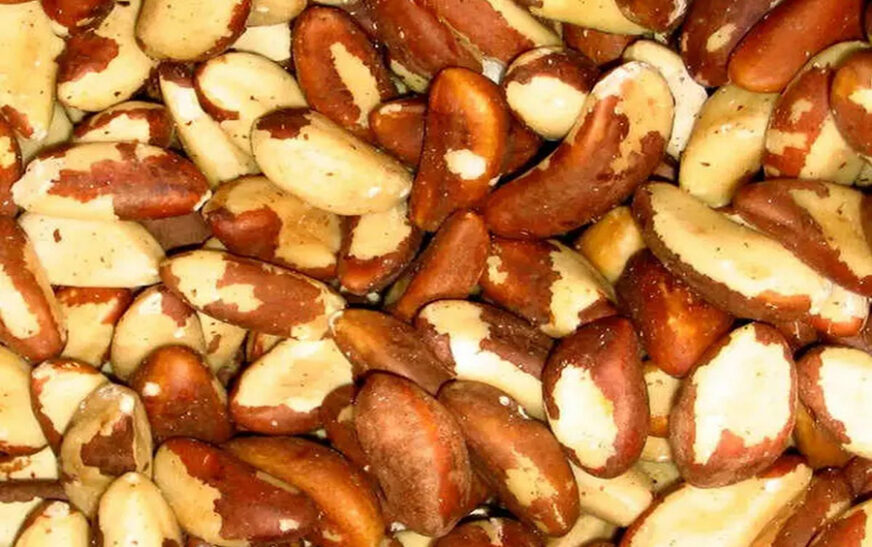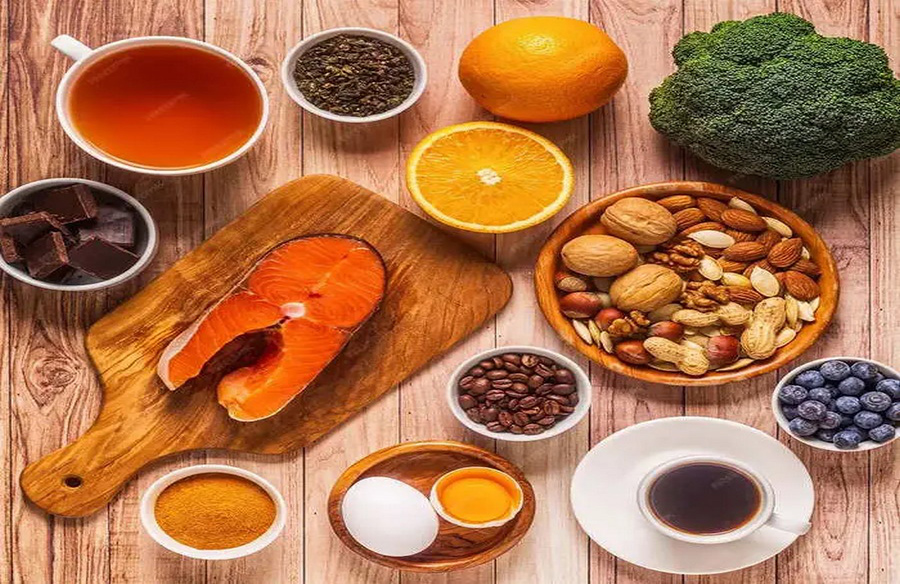What Are Brazil Nuts?
Brazil nuts, originating from the tall trees of the Amazon rainforest, are seeds celebrated for their rich, creamy flavor and abundant nutrients. Enclosed in a hard shell, these nuts, also known as “Bertholletia nuts,” are a cherished delicacy native to South America.
Nutritional Value
Brazil nuts offer an impressive array of nutrients in a one-ounce serving:
- Calories: 187
- Protein: 4 grams
- Healthy Fats: 19 grams (predominantly monounsaturated and polyunsaturated fats)
- Dietary Fiber: 2 grams
- Vitamins (notably selenium, vitamin E, thiamin, and niacin)
- Minerals (including magnesium, phosphorus, copper, and zinc)
Health Benefits
The nutritional composition of Brazil nuts translates into various health advantages:
- Rich in Selenium: A vital mineral for thyroid function, immune support, and antioxidant defense.
- Heart Health: Healthy fats and antioxidants aid in reducing inflammation and improving cholesterol levels.
- Antioxidant Properties: Packed with antioxidants to combat oxidative stress and reduce chronic disease risk.
- Weight Management: Protein and healthy fats promote satiety, assisting in weight management.
- Supportive of Brain Function: Nutrients like vitamin E and selenium play roles in maintaining cognitive function and reducing neurodegenerative disease risk.
Culinary Uses
Brazil nuts lend themselves well to diverse culinary creations:
- Enjoy raw or roasted as a delectable snack.
- Add chopped Brazil nuts to salads, cereals, or yogurt for extra crunch and flavor.
- Incorporate them into desserts like chocolate and nut clusters for a delightful treat.
How to Buy and Store Brazil Nuts
Consider these tips when purchasing and storing Brazil nuts:
- Choose unshelled nuts or vacuum-sealed packages to maintain freshness.
- Look for a strong, nutty aroma as an indicator of freshness.
- Store in an airtight container in a cool, dry place or the refrigerator to prevent rancidity.
Precautions and Potential Side Effects
While beneficial, Brazil nuts come with precautions:
- Selenium Overdose: Excessive consumption may lead to toxicity symptoms; aim for around 55 micrograms daily.
- Allergies: Exercise caution, especially with known nut allergies.
- Mold Contamination: Opt for reputable brands to minimize aflatoxin risk.










